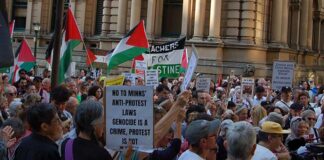Scrapping austerity in Greece would mean withdrawing from the EU. This would allow Greece to default and cancel its €340 billion debts.
Greece’s debt is an enormous burden on the government. Government spending has averaged €100 billion in recent years, but this year it must pay back around €25 billion to its creditors, equal to one quarter of total spending.
Around 90 per cent of the new bailout loans it received from the EU and the IMF between 2010 and 2012 were handed straight back to the same bodies as interest payments.
There is no doubt that Greece faces a difficult choice: between accepting austerity as the price of remaining in the Eurozone or deciding to exit the EU.
A “Grexit” would not be easy. Going off the Euro would mean there would need to be a new Greek currency. It would be worth far less than the Euro, possibly 50 per cent. Loans in Euros would have to be renominated to stop their cost exploding.
This would mean nationalising the banks and imposing currency controls to stop bank collapses as depositors withdrew their money.
The price of imports would shoot up, threatening living standards due to the increase in price of imported food and medicines. Businesses would try to force these costs onto workers through wage cuts and sackings resulting from factory closures.
But workers could fight for anti-capitalist measures to force the costs onto the rich. Workers could fight to demand pay rises to keep up with price inflation. Where bosses declared companies unprofitable, the workers could take them over and run them under workers’ control. Those who faced sacking or business closures could occupy and demand that the government nationalise them to guarantee jobs.
The assets of the wealthy could be seized to pay for increased pensions and social welfare programs. Despite the crisis Greece remains a rich country with strong shipping, tourism and agriculture industries.
The wealthy would resist with all the means at their disposal, including the police and the armed forces. Such a challenge to the power of the ruling class would eventually require workers to take power into their own hands, forming a government based on control of the workplaces. This would mean a revolution.
Greece, the country with the strongest radical left and workers’ movement in Europe, has experienced a high level of class struggle since 2009. There have already been experiments with workers’ control at a major newspaper, in the public broadcaster ERT and in hospitals as a result of closures and sackings by management.
In conditions of such crisis, a radical anti-capitalist struggle becomes possible.
By James Supple





